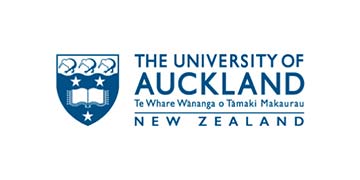University Of Auckland: Research on ‘State of Eye Health in the Pacific’ gets under way
Pacific eye health leaders recognise that strengthening eye health systems requires evidenced-based research informed by the Pacific context. The Fred Hollows Foundation NZ, in collaboration with the University of Auckland, aims to support the development of locally driven research through a new and ambitious research programme named the ‘State of Eye Health in the Pacific’.
The programme intends to develop the evidence that Pacific governments and decisionmakers require to establish eye-health plans and policies that will strengthen and sustain their eye-health systems for the long term. Key to the success of the programme, will be the engagement of ophthalmic nurses who, as the professionals at the forefront of tackling avoidable blindness, will lead the research activities in their respective countries.
The University of Auckland (Centre for Pacific and Global Health and School of Optometry and Vision Science) will partner with The Foundation on this research programme, with both organisations committed to supporting sustainable, resilient, and quality eye care in the Pacific.
In three phases over five years, through partnerships and local leadership, this research programme aims to address the current lack of information and data on Pacific eye health, and the current and future socio-economic impacts that blindness and vision impairment have on Pacific Island Countries (PICs) and their communities.
PICs often face unique geographical, governance, and financing challenges in delivering accessible and quality healthcare for their people. This means governments must decide which public health issues to prioritise. As well as this, with hundreds of islands spread across the Pacific region, covering approximately 15 percent of the earth’s surface, collecting timely and accurate data to help with these decisions is extremely challenging.
Dr Audrey Aumua, The Foundation’s Chief Executive Officer, says, “Eye health is one area of public health that has remained under-resourced in the Pacific region. However, eye health leaders recognise that without increased focus on eye health now, and the development of policies and plans, PICs will face deepening socio-economic crises resulting from growing blindness and vision impairment.
“With growing and ageing populations, the ongoing rise of non-communicable diseases, and increasing socio-economic disparities across the Pacific region, our aim is for this research programme to help secure much-needed public funding for eye health and ensure ongoing monitoring and reporting on the state of eye health in PICs.”
We see this programme as a massive opportunity to bridge the gap between services we know work and the people who need them.
Associate Professor Jacqueline Ramke
Principal investigator, Associate Professor Jacqueline Ramke from the School of Optometry and Vision Science, says generating the evidence required for this ambitious programme is an exciting project.
“Effective treatments exist for the most common causes of vision loss, so we see this programme as a massive opportunity to bridge the gap between services we know work and the people who need them.
“We are proud to be one of the first projects falling under the umbrella of the newly established Te Poutoko Ora a Kiwa, Centre for Pacific and Global Health at Waipapa Taumata Rau, University of Auckland and look forward to contributing to improving eye health in the region.”
Associate Professor Collin Tukuitonga, Centre Director, is pleased to work together with The Fred Hollows Foundation NZ on a neglected area in the Pacific.
“Improved knowledge enhances our ability to respond better to the needs of Pacific people in the region,” he says.
Further information about the research programme:
Each phase of the programme will be guided by local leadership, local based researchers and country priorities; strengthen local capabilities, voice, and agency; consider the impacts of blindness and vision impairment on disadvantaged and marginalised communities; produce a comprehensive report for publication; and produce concise, impactful policy briefs for Pacific Island governments and decision makers.

